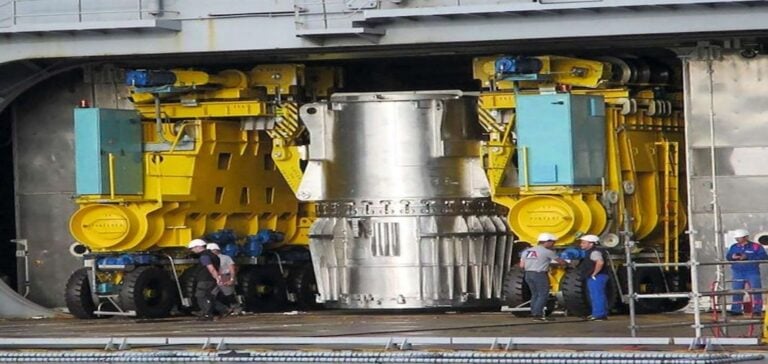Three companies, Newcleo, Fincantieri and Rina, have signed an agreement to develop mini-nuclear reactors to be fitted on merchant ships to contribute to their decarbonization, the companies announced on Tuesday.
Towards clean, innovative shipping
Under the terms of the agreement, the Anglo-French-Italian nuclear start-up Newcleo and the Italian shipbuilders Fincantieri and the ship certifier Rina have joined forces to “jointly carry out a feasibility study on nuclear applications in the maritime transport sector, with particular reference to lead-cooled Small Modular Reactors (SMR) technology”.
This 4th generation reactor technology, proposed by Newcleo, aims to use nuclear waste as fuel. “Deploying Newcleo’s innovative Lead Fast Reactor (LFR) for naval propulsion involves placing an on-board mini-reactor on ships as a small nuclear battery producing 30 MW of electrical power,” the companies explain in their joint press release.
Mini nuclear reactors: a promise of autonomy and maritime decarbonization
This equipment would require infrequent refuelling (only once every 10 to 15 years), very limited maintenance and “easy” replacement at end-of-life, explain the partners. Far from today’s powerful nuclear reactors (1,000 MW or more), SMRs are at the heart of a worldwide development race, but none has yet materialized.
The use of nuclear energy to power ships would help to “rapidly decarbonize a sector faced with enormous fossil fuel consumption and the associated greenhouse gas emissions”, argue the companies, who are not, however, disclosing a timetable.






















